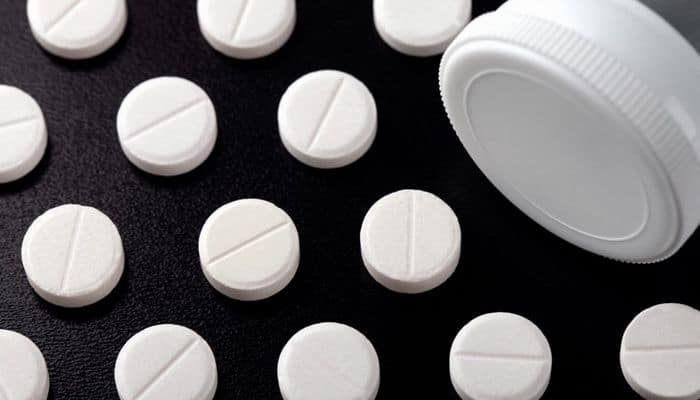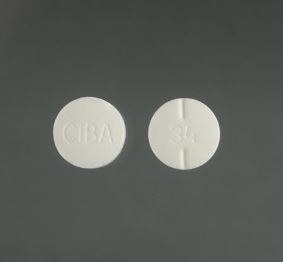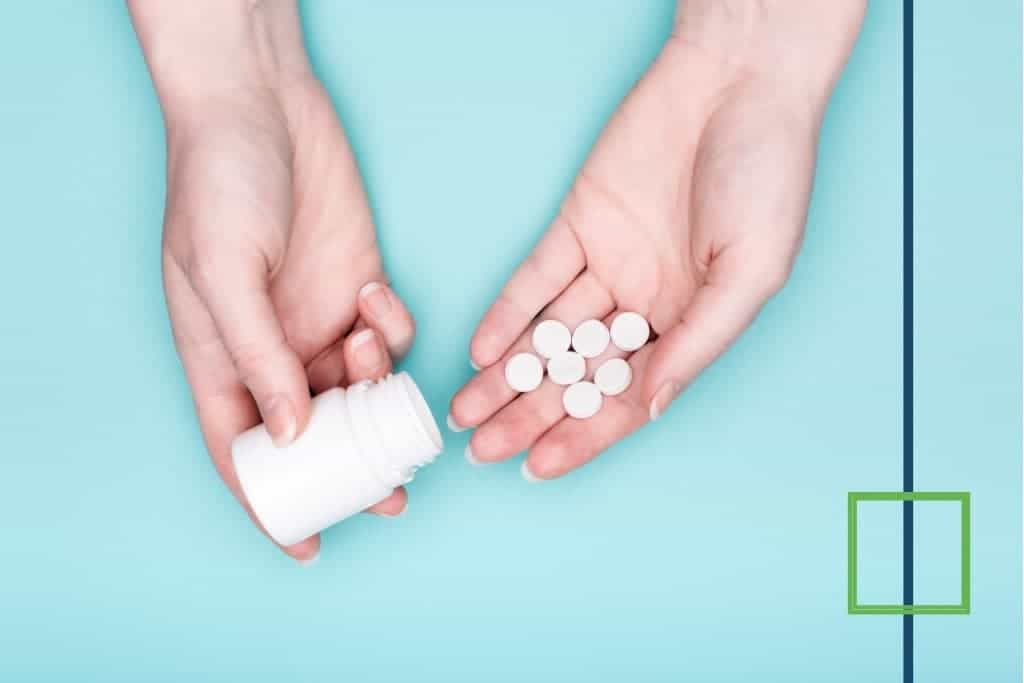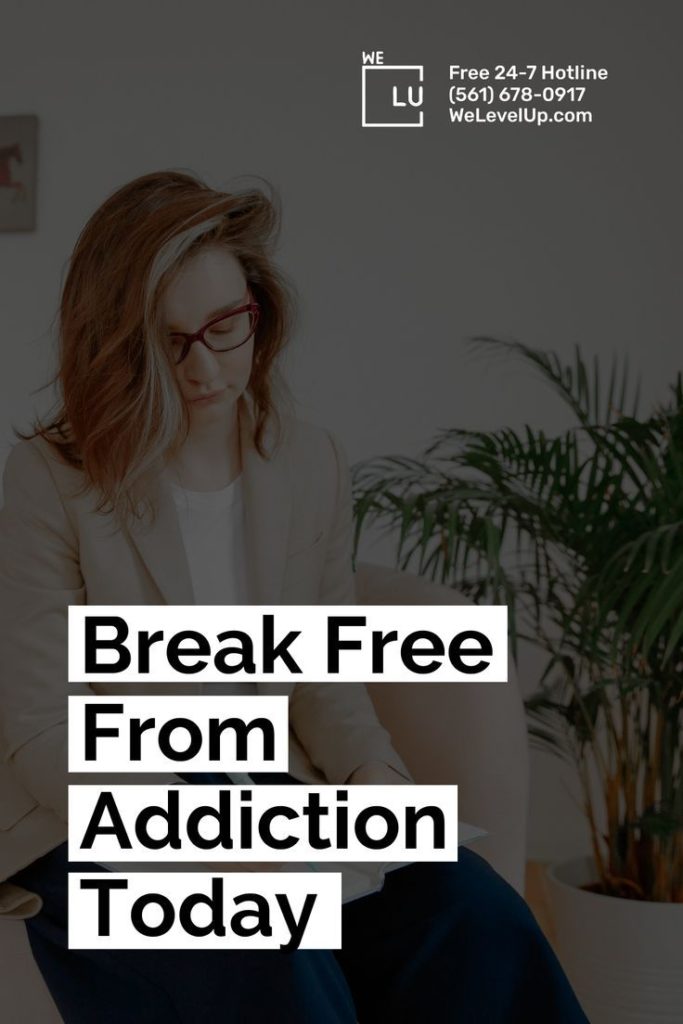Ritalin Withdrawal & How Long Does Ritalin Last?
Ritalin withdrawal is the process of stopping Ritalin after using it for an extended period of time. It is important to discuss with a doctor before stopping Ritalin in order to minimize withdrawal symptoms. Common withdrawal symptoms may include depression, anxiety, irritability, fatigue, and difficulty focusing.
Ritalin begins to work within 20 to 30 minutes after taking the pill. Ritalin how long does it last? The effects of the short-acting formulation last three to five hours, while the long-acting formulation lasts around eight hours. Ritalin has a half-life of somewhere between one and four hours. However, according to research, its removal from the body varies substantially from person to person.
Methylphenidate, the generic name of Ritalin, is used as part of a treatment program to control symptoms of attention deficit hyperactivity disorder (ADHD; more difficulty focusing, controlling actions, and remaining still or quiet than other people who are the same age) in adults and children. Methylphenidate (Methylin) is also used to treat narcolepsy (a sleep disorder that causes excessive daytime sleepiness and sudden attacks of sleep). Methylphenidate is in a class of medications called central nervous system (CNS) stimulants. It works by changing the amounts of certain natural substances in the brain.
Ritalin Withdrawal Symptoms
Ritalin has a short half-life of three to four hours and will be in your system for less than 24 hours after the previous dose. But if you have gotten dependent on Ritalin, you will soon suffer withdrawal symptoms.
Common withdrawal symptoms of Ritalin use include depression, anxiety, irritability, fatigue, and difficulty focusing. It is important to understand that Ritalin withdrawal can be accompanied by additional symptoms, such as stomach pain, headaches, and changes in appetite. It is essential to talk to your doctor about possible withdrawal symptoms and plan to slowly reduce your dose of Ritalin in order to prevent more serious or long-lasting side effects. It is also important to seek help from a professional before stopping Ritalin in order to minimize Ritalin withdrawal symptoms.
Is Methylphenidate Addictive? What is Ritalin? Methylphenidate Addiction and Withdrawal
Ritalin is a type of medication known as a stimulant. It is used to treat Attention-Deficit/Hyperactivity Disorder (ADHD) and Narcolepsy, a condition in which people have episodes of extreme drowsiness. It works by increasing levels of neurotransmitters in the brain, which can help improve concentration and focus. The effects of Ritalin can vary from person to person, but common side effects include insomnia, loss of appetite, headache, and dizziness.
Ritalin affects the parts of the brain and central nervous system (CNS) that control impulses and hyperactivity. Ritalin is one of the trade names for the drug known as methylphenidate. Other brand names can include Concerta, Methylin, and Metadate. Methylphenidate was first approved by the U.S. Food and Drug Administration in 1955 for treating what was then referred to as hyperactivity.
Ritalin works by stimulating the brain chemicals dopamine and norepinephrine, chemicals associated with control and attention. Dopamine also has strong associations with pleasure and reward. Norepinephrine mobilizes the brain and body to get ready for action and is involved in the fight-or-flight response. Unfortunately, Ritalin is prone to abuse, just like other stimulants. Furthermore, its ability to improve concentration means some people use it to boost cognitive ability. Ritalin is available as a tablet that a person can take orally and as a patch that allows absorption of the medication through the skin.
Like other stimulants, this drug often causes psychological symptoms during Ritalin withdrawal. Since Ritalin primarily works by influencing dopamine in the brain, Ritalin withdrawal symptoms will be related to reward, emotion, and energy levels. You may feel apathetic, depressed, anxious, irritable, and tired. How long do Ritalin withdrawal symptoms last? The time frame for withdrawing from Ritalin can vary for each person depending on various factors unique to the individual. However, it is essential to go through the Ritalin detox stage to overcome addiction.


Skip To:
Learn More:

Get Your Life Back
Find Hope & Recovery. Get Safe Comfortable Detox, Addiction Rehab & Dual Diagnosis High-Quality Care.
Hotline(844) 597-1011Facts About Ritalin (Methylphenidate)
Generic Name: methylphenidate (oral) [ METH-il-FEN-i-date ]
Brand Names: Ritalin tablets, Ritalin LA capsules
Drug Class: CNS stimulants
Ritalin is a Schedule II substance under the Controlled Substances Act. Schedule II drugs, which include cocaine and methamphetamine, have a high potential for abuse. [1]
Ritalin Warnings
Ritalin may be habit-forming. Tell your doctor if you have a history of drug or alcohol addiction. Keep the medication where others cannot get to it. Misuse of Ritalin can cause addiction, overdose, or death. Tell your doctor if you have had problems with drug or alcohol abuse. Stimulants have caused stroke, heart attack, and sudden death in people with high blood pressure, heart disease, or a heart defect.
Ritalin Fast Facts Shared by the National Drug Intelligence Center, Publicly Made Available for Substance Use Disorder Awareness
Ritalin Addiction Statistics
According to the National Institute on Drug Abuse, around five million American adults misuse prescription stimulants in 2018. They have found that prescription stimulant use without misuse, misuse without use disorders, and use disorders were all higher among adults with major depressive episodes, suicidal ideation, and substance use problems.
More than half (56.3%) cited cognitive enhancement as the reason for misusing prescription stimulants. Although purportedly used to increase alertness and concentration, research has shown that cognitive improvement from prescription stimulants is minimal and often inconsistent. The scientists point out that actions should be taken to expand safe, evidence-based treatment for Attention Deficit Hyperactivity Disorder and to decrease prescribing that may leave unused stimulants available for potential misuse. Clinicians can also screen for, and identify adults with, an increased risk for prescription stimulant misuse and pay attention to their motivations for misuse. [2]
10.3 MIllion
Among people aged 12 or older in 2020, 3.7% (or 10.3 million people) misused central nervous system (CNS) stimulants in the past year.
Source: SAMHSA
1.2 out of 100
Withdrawal from methylphenidate (Ritalin) due to serious adverse events occurred in about 1.2 out of 100 patients treated with methylphenidate.
Source: NCBI
16.1 MIllion
The 16.1 million people in 2020 who misused prescription psychotherapeutic drugs in the past year included 9.3 million people who misused prescription pain relievers, 6.2 million people who misused prescription tranquilizers or sedatives, and 5.1 million people who misused prescription stimulants. [3]
Source: SAMHSA
How Long Do Ritalin Withdrawal Symptoms Last? Ritalin Addiction Withdrawal
Ritalin can produce effects similar to cocaine addiction when misused, and it has a high potential for abuse. Long-term use can result in dependence and withdrawal symptoms upon quitting. Ritalin, like other stimulants, often causes psychological symptoms during withdrawal (withdrawals from methylphenidate). Since Ritalin primarily works by influencing dopamine in the brain, Ritalin withdrawal symptoms will be related to reward, emotion, and energy levels. You may feel depressed, apathetic, anxious, irritable, and tired.
The duration of physical symptoms of Ritalin withdrawal generally last from 1-3 weeks, depending on the length of the addiction and how high the dosages were. Without proper treatment, the timeline for symptoms can last much longer, and the psychological symptoms can be more severe.
Ritalin Withdrawal Symptoms (Methylphenidate Withdrawal Symptoms)
Withdrawal symptoms of methylphenidate can include:
- Depression
- Fatigue
- Intense craving
- Loss of physical and mental energy
- Agitation
- Anxiety
- Decreased interest in the surrounding environment
Ritalin Withdrawal Side Effects
What are the Ritalin withdrawal side effects? Common Ritalin withdrawal symptoms include:
- Hunger
- Fatigue
- Insomnia or hypersomnia
- Depression
- Vivid dreams or nightmares
- Cravings
- Inability to feel pleasure (anhedonia)
Even those who do not take the drug regularly may experience a crash when the drug wears off. A Ritalin crash may consist of the following symptoms:
- Exhaustion
- Excessive sleep
- Depression
- Increased appetite
Ritalin withdrawal symptoms can vary in intensity depending on individual physiology and how large the last dose was, and how long the person took Ritalin.

Get Help. Get Better. Get Your Life Back.
Searching for Accredited Drug and Alcohol Rehab Centers Near You?
Even if you have failed previously and relapsed, or are in the middle of a difficult crisis, we stand ready to support you. Our trusted behavioral health specialists will not give up on you. When you feel ready or just want someone to speak to about therapy alternatives to change your life call us. Even if we cannot assist you, we will lead you to wherever you can get support. There is no obligation. Call our hotline today.
(844) 597-1011Ritalin Withdrawal Timeline
- 72 hours: After your last dose of Ritalin, your first symptoms may show up within 72 hours. If you were used to a high dose for a long time, you might feel symptoms after 24 hours. Early symptoms may include sleep issues, anxiety, and irritability. You may also start to crave the drug.
- 7 days: Symptoms will increase in intensity over the first week, and they will likely reach their peak within the first seven days. Peak symptoms are when the Ritalin withdrawal period is at its most uncomfortable. Symptoms can include depression, insomnia, nausea, and fatigue.
- 2 weeks: By the second week, your symptoms will start to subside. Psychological symptoms tend to linger longer than physical ones; you may continue to experience anxiety and depression. Cravings also last longer than other acute symptoms.
- 1 month: In some cases, certain symptoms like anxiety may continue for a month or more. You may need to attend addiction treatment to address issues like drug cravings and psychological symptoms. Treatment can help you learn how to cope with ongoing issues without relapse.
Managing Withdrawal Symptoms of Ritalin
Ritalin withdrawal may be more dangerous if it causes symptoms of withdrawal from methylphenidate like severe depression. Stimulants can sometimes cause you to experience depression which leads to feelings of hopelessness and despair. If this leads to suicidal thoughts, it’s important to talk to someone immediately.

Ritalin withdrawal can also be dangerous if it presents a barrier to you getting help for a substance use problem. If you’ve developed an addiction to Ritalin, withdrawal symptoms might come with a compulsion to use the drug despite serious consequences. These consequences may include health issues, strained relationships, and financial instability.
Remaining in a pattern of addiction to Ritalin can be dangerous. High doses can affect your heart rate and blood pressure, and very high doses can lead to overdose. Going through Ritalin withdrawal with help may allow you to break the cycle of addiction. Detox is a high level of care in addiction treatment used to treat people who could go through severe Ritalin withdrawal symptoms. However, it may also be used to treat people who have other health conditions that need to be addressed or monitored alongside withdrawal.
For instance, stimulants like Ritalin can cause changes in heart rate and blood pressure that can be risky for people with heart conditions. Detox involves 24-hour medically managed services that usually last for about a week to 10 days, depending on your needs.
How Long Does Ritalin Last in Your System?
Ritalin can typically be found in urine samples for one to three days after consumption. Typically, one to three days after consumption, methylphenidate can still be found in saliva using testing. Ritalin screening does not frequently involve blood tests.
How Long Does Ritalin Last?
The length of time that Ritalin stays in your system can depend on a variety of factors, including your metabolism, the dose you take, and how often it is taken. Typically, Ritalin can last up to 8 hours in adults, so it is usually taken two to three times a day.
Top 5 How Long Does Ritalin Last? FAQs
-
How long does 10mg Ritalin last?
Ritalin 10 mg works quickly and its effect lasts approximately 4 hours. It is usually taken 1-2 hours before its maximum effect is required, and may be given more than once a day.
-
How long does Ritalin ER last? How long does Ritalin extended release last?
Methylphenidate from Ritalin ER tablets is eliminated from plasma with an average half-life of about 3.5 hours.
-
How long does Ritalin long acting last?
Long-acting stimulants are medications that work in phases to treat symptoms throughout the day. Part of the dose is immediate-release, meaning it goes into effect immediately.
-
How long does 10 mg Ritalin last and stay in your system?
The usual starting dose for adults is 10mg, taken once in the morning. Your doctor may increase the dose gradually (usually weekly) until they find the dose that works best for you. In general, urine screens can detect the presence of Ritalin for one to three days following use.
-
How long does Ritalin 10mg last and what are the side effects?
The average daily Ritalin dose is 20 to 30 mg, given in 2 to 3 divided doses. Some patients may require 40 to 60 mg daily, while for others, 10 to 15 mg daily will be adequate. Commonly reported side effects of Ritalin are insomnia, nausea, headache, vomiting, decreased appetite, and xerostomia. Other side effects include anxiety, tic disorder, hyperhidrosis, and irritability.
First-class Facilities & Amenities
World-class High-Quality Addiction & Mental Health Rehabilitation Treatment
Rehab Centers TourRenowned Addiction Centers. Serene Private Facilities. Inpatient rehab programs vary.
Addiction Helpline(844) 597-1011Proven recovery success experience, backed by a Team w/ History of:
15+
Years of Unified Experience
100s
5-Star Reviews Across Our Centers
10K
Recovery Success Stories Across Our Network
- Low Patient to Therapist Ratio
- Onsite Medical Detox Center
- Comprehensive Dual-Diagnosis Treatment
- Complimentary Family & Alumni Programs
- Coaching, Recovery & Personal Development Events
Ritalin vs. Adderall: What Are the Differences?
There are a lot of similarities between the two prescription drugs. Both medications are stimulants used to treat ADHD, and both are classified as Schedule II controlled substances. Drugs are classified as schedule II drugs if they are determined to have a high potential for misuse, dependence, and addiction. If you have a history of substance use problems, it’s important to let your doctor know before taking either medication.
As far as differences, the primary chemical in Ritalin is methylphenidate; in Adderall, it’s the amphetamine. Treating addiction to both drugs is a very delicate process. The most important thing to know for Adderall addiction treatment is that the ‘cold turkey’ method is not always the best approach.
Ritalin comes in three forms: instant release (lasting 3-4 hours), sustained release (lasting 6-8 hours), and long-acting (lasting 8 hours). Adderall comes in two formulations: instant release (lasting 4-6 hours) and extended release (lasting 12 hours).
Both medications help individuals with ADHD by improving symptoms that interfere with their ability to focus and pay attention. Ritalin and Adderall also lessen hyperactivity and impulsivity. Moreover, studies show that for approximately 80% of adults with ADHD, Ritalin provides relief of symptoms. The main difference is that Ritalin works more quickly than Adderall, and Adderall stays in the body longer.
Is Ritalin Addictive?
Yes. Ritalin is addictive, especially when used without a prescription. It is a drug of abuse among some because they believe or have experienced it:
- Promotes improved concentration
- Increases mental sharpness
- Helps a person manage a heavy workload
- Stimulates weight loss
- Gets a person high
The drugs Ritalin and Adderall may be so intertwined in the public mind. Psychological, physical, and behavioral signs of Ritalin addiction include:
- Anxiety
- Low appetite
- Irritability
- Rapid heart rate
- Dehydration
- Panic attacks
- Suspiciousness
- Depression
- Crushing and snorting Ritalin
- Stealing, lying, and/or doctor-shopping to get extra Ritalin pills
Addiction to this drug is usually a result of illegal Ritalin abuse. Ritalin addiction is more likely to happen if you take it without a legitimate medical reason, take it in very high doses, or have a previous history of alcohol and drug abuse. Ritalin has very different effects on people with ADHD than the rest of the population, serving to help sufferers focus more quickly and stay relaxed and calm. They don’t really experience this drug’s stimulant or euphoric qualities that make it so attractive to other people.
After recognizing signs of Ritalin addiction, a loved one may want to recommend drug addiction treatment to the affected person. Though Ritalin addiction can cause significant damage to a person’s life, most of its effects can be effectively reversed with comprehensive treatment.
How Long Does it Take to Detox from Methylphenidate?
How long do Ritalin withdrawal symptoms last? Detoxing from Ritalin typically takes 3-5 days. It can take a little bit longer on occasion. The majority of Ritalin detox symptoms, however, go away a few weeks after the final dose. The quantity, frequency, and length of Ritalin use or misuse determine the strength and severity of Ritalin detox symptoms. Symptoms that appear in the first few days after discontinuing Ritalin are indicative of chronic Ritalin use. While persistent drug cravings may last for weeks to months after stopping usage, Ritalin detox often finishes after 2-3 weeks of your last use.
Benefits of Ritalin Addiction Treatment
There are many benefits of receiving treatment for a Ritalin addiction, including:
- Education on the disease of addiction
- Encouragement and support from others who are facing the same types of challenges
- The ability to safely talk about and personal process experiences with a therapist who can help explore the root causes of the addiction
- Knowledge of healthy coping skills, including relapse prevention strategies, and the ability to practice implementing them in a safe environment
- The ability to participate in family therapy and work on improving personal relationships
- The ability to take the time needed to truly invest in oneself and improve physical and mental health
World-class, Accredited, 5-Star Reviewed, Effective Addiction & Mental Health Programs. Complete Behavioral Health Inpatient Rehab, Detox plus Co-occuring Disorders Therapy.
CALL(844) 597-1011End the Addiction Pain. End the Emotional Rollercoaster. Get Your Life Back. Start Drug, Alcohol & Dual Diagnosis Mental Health Treatment Now. Get Free No-obligation Guidance by Substance Abuse Specialists Who Understand Addiction & Mental Health Recovery & Know How to Help.
Ritalin Detox & How to Detox from Methylphenidate?
Ritalin abuse professional detox for withdrawal from Ritalin procedures typically involves round-the-clock medical supervision and the administration of drugs to treat side effects. You will be provided a room with a bed to stay in for the duration of the detox for methylphenidate if the professionals in charge of the procedure decide that inpatient detox is the best option for you. Your vitals will be monitored frequently while you are in this room to make sure you are secure and to stop your Ritalin withdrawal symptoms (withdrawal symptoms from methylphenidate) from going out of control. Furthermore, you’ll be able to speak with the doctors frequently to make sure your symptoms are adequately managed.
Ritalin Withdrawal Medications and Detox
Treatment for withdrawal from prescription stimulants like Ritalin is symptomatic. Symptoms are usually not medically life-threatening and do not require pharmaceutical intervention. Still, some medications may be used during Ritalin withdrawal to treat symptoms and provide support. These include:
- Antidepressants are used to minimize the risk of doing harm to self or others.
- Benadryl is used for sedation and for effects on possible dermatologic problems (itching and hypersensitivity of the skin).
- Drug craving medications, medicines such as bromocriptine, and amantadine may address cravings for Ritalin, but without clear results.
- Neuroleptics, this class of drugs can be used if needed to treat psychotic episodes provoked by high doses of methylphenidate.
Moreover, alternative treatments such as acupuncture to the ear may help ease symptoms of Ritalin withdrawal. But in any case, plenty of bed rest and drinking plenty of fluids is indicated as the body adapts to the absence of Ritalin.
Treatment for Ritalin Addiction
There is a strong link between mental health and substance abuse. Individuals who struggle with mood disorders like depression and anxiety are more susceptible to developing an addiction to drugs or alcohol, often to self-medicate symptoms of their underlying mental health condition. These co-occurring disorders can make each other worse without proper treatment.
To answer the question “how long do Ritalin withdrawal symptoms last?” it’s crucial to first get an accurate assessment of all the symptoms. When the symptoms have been evaluated by a mental health professional, it may be determined that another form of mental condition is present and needs a particular type of treatment. Very often, some combination of psychotherapy, medication, and/or lifestyle changes are effective for coping with functional.
Medically-Assisted Detox
Medical detox is often considered the first stage of treatment. It will help you navigate the complicated process of Ritalin withdrawal, but it doesn’t address patterns of thought and behavior that contribute to drug use. Various treatment approaches and settings can help provide the ongoing support necessary to maintain long-term sobriety after you complete detox.
Cravings are very common during detox and can be challenging to overcome. This often leads to relapse. Constant medical care provided during inpatient addiction rehab helps prevent relapse. Clinicians can provide the necessary medication and medical expertise to lessen cravings and the effects of Ritalin withdrawals.
Psychotherapy for ADHD
Several different modalities of psychotherapy have been used in the treatment of mental health disorders along with addiction, including:
- Cognitive Behavioral Therapy (CBT) – It is an effective treatment that involves making changes in both the patterns of negative thoughts and the behavioral routines which are affecting the daily life of the depressed person for various forms of depression.
- Dialectical Behavioral Therapy – It is a comprehensive mental health and substance abuse treatment program whose ultimate goal is to aid patients in their efforts to build a life worth living. The main goal of DBT is to help a person develop what is referred to as a “clear mind.”
- Person-Centered Therapy – It is a strategy that allows and encourages clients to understand and resolve their concerns in a safe, supportive environment.
- Solution Focused Therapy – It is an approach interested in solutions that can be quickly implemented with a simple first step leading to further positive consequences.
Dual Diagnosis Treatment
Prescription drug abuse and mental health disorders often co-occur. In many cases, traumatic experiences can result in mental health disorders and substance abuse. Dual-diagnosis rehabilitation treats both of these issues together. The best approach for the treatment of dual diagnosis is an integrated system. In this strategy, both the substance abuse problem and the mental disorder are treated simultaneously. Regardless of which diagnosis (mental health or substance abuse problem) came first, long-term recovery will depend largely on the treatment for both disorders done by the same team or provider.
Medication-Assisted Treatments
Medication-Assisted Treatments (MAT) for substance use disorder and mental health disorders are commonly used in conjunction with one another. This includes the use of medications and other medical procedures. During your rehab, the staff from your treatment facility will help you identify what caused your addiction and teach you skills that will help you change your behavior patterns and challenge the negative thoughts that led to your addiction. Sometimes, the pressures and problems in your life lead you to rely on substances to help you forget about them momentarily.
If you or a loved one are struggling with long-term prescription drug abuse and a co-occurring mental health condition such as ADHD, contact one of our helpful treatment specialists today. We Level Up can provide information on dual diagnosis and detox rehab programs that may fit your specific needs.

Top 10 Ritalin Withdrawal & How Long Does Ritalin Last? FAQs
-
How long does Ritalin last 10 mg?
Adults often begin with 10mg given once in the morning. Your doctor may progressively raise the amount of dosage (typically weekly) until they discover the ideal dose for you.
-
How long does Ritalin LA last?
Long-acting stimulants are drugs that address symptoms throughout the day in stages. A portion of the dosage is immediate-release, which means it takes effect right away.
-
How long does Ritalin last 20mg?
Each tablet lasts for approximately 8 hours. Available in only one dosage strength of 20mg. Tablets should be swallowed whole with water or other liquids.
-
How long does extended release Ritalin last?
Methylphenidate from Ritalin ER tablets is eliminated from plasma with an average half-life of about 3.5 hours.
-
How long does 5mg Ritalin last?
Available in 5mg, 10mg, and 20mg dosages. Each tablet lasts for approximately three to four hours.
-
For Ritalin LA 20 MG how long does it last?
Each Ritalin tablet lasts for approximately 8 hours. Available in only one dosage strength of 20mg. Ritalin pills should be swallowed whole with water or other liquids.
-
How long does 15 mg Ritalin last?
Ritalin’s effects with 15 mg last about three to four hours.
-
How long does Ritalin last in adults?
Your doctor will normally gradually raise your Ritalin dosage until they know the dose that works best for you. This implies that you may have to wait a few weeks before you see any results. Once you’ve identified the proper dose, methylphenidate should start working within 30 to 60 minutes.
-
How long does Ritalin last and its withdrawal?
The quantity, frequency, and length of Ritalin use or misuse determine the strength and severity of Ritalin detox symptoms. Symptoms that appear in the first few days after discontinuing Ritalin are indicative of chronic Ritalin use.
-
How long does Ritalin last and how to detox?
During Ritalin detox, while persistent drug cravings may last for weeks to months after stopping usage, Ritalin detox often finishes after 2-3 weeks of your last use. Ritalin withdrawal may not be as dangerous as withdrawal from other medicines that cause central nervous system reliance. Substance use disorders, on the other hand, are chronic and progressive illnesses. That implies they might endure a long period and worsen over time, especially if not treated properly. Contact a professional and accredited addiction treatment center to detox safely.
Experience Transformative Recovery at We Level Up Treatment Centers.
See our authentic success stories. Get inspired. Get the help you deserve.
Start a New Life
Begin with a free call to an addiction & behavioral health treatment advisor. Learn more about our dual-diagnosis programs. The We Level Up Treatment Center Network delivers recovery programs that vary by each treatment facility. Call to learn more.
- Personalized Care
- Caring Accountable Staff
- World-class Amenities
- Licensed & Accredited
- Renowned w/ 100s 5-Star Reviews
We’ll Call You
Search We Level Up Ritalin Withdrawal, How Long Does Ritalin Last? Detox Topics & Resources
Sources:
[1] Methylphenidate – U.S. Department of Health and Human Services National Institutes of Health
[2] NIDA. 2018, April 16. Five million American adults misuse prescription stimulants. Retrieved from https://nida.nih.gov/ on 2023, February 17
[3] Key Substance Use and Mental Health Indicators in the United States: Results from the 2020 National Survey on Drug Use and Health – Substance Abuse and Mental Health Services Administration (SAMHSA)
[4] MAT Medications, Counseling, and Related Conditions – https://www.samhsa.gov/medication-assisted-treatment/medications-counseling-related-conditions – Substance Abuse and Mental Health Service Administration
[5] Controlled Substance Schedules – https://www.deadiversion.usdoj.gov/schedules/ – Drug Enforcement Administration
[6] Treatment Approaches for Drug Addiction DrugFacts – National Institute on Drug Abuse
[7] Fluyau D, Charlton TE. Drug Addiction. [Updated 2022 Aug 29]. In: StatPearls [Internet]. Treasure Island (FL): StatPearls Publishing; 2022 Jan-. Available from: https://www.ncbi.nlm.nih.gov/books/NBK549783/
[8] Justinova Z, Panlilio LV, Goldberg SR. Drug addiction. Curr Top Behav Neurosci. 2009;1:309-46. DOI: 10.1007/978-3-540-88955-7_13. PMID: 21104390; PMCID: PMC3039293.
[9] Farzam K, Faizy RM, Saadabadi A. Stimulants. [Updated 2022 Jun 16]. In: StatPearls [Internet]. Treasure Island (FL): StatPearls Publishing; 2022 Jan-. Available from: https://www.ncbi.nlm.nih.gov/books/NBK539896/
[10] Ciccarone D. Stimulant abuse: pharmacology, cocaine, methamphetamine, treatment, attempts at pharmacotherapy. Prim Care. 2011 Mar;38(1):41-58. DOI: 10.1016/j.pop.2010.11.004. Epub 2011 Jan 11. PMID: 21356420; PMCID: PMC3056348.





